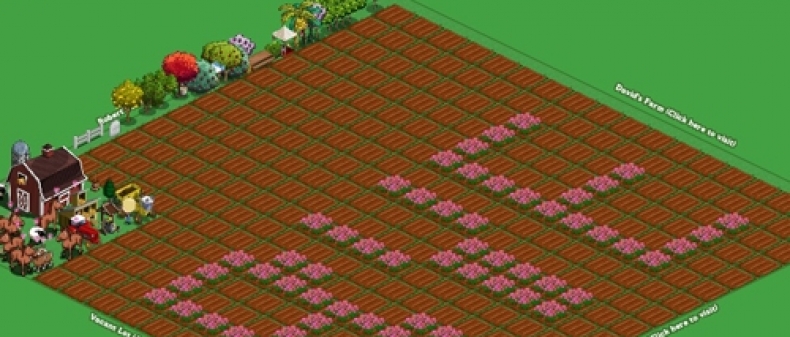
Zynga, the social game developer, has had a rough 2012 so far. After an underwhelming IPO, the stock performed poorly, down by over 20% at its worst. Its new games have been slower to catch on with users than their predecessors. And this week, Zynga was accused of creating a knockoff game that so heavily copied the work of another studio it’s worthy of Canal Street.
In mid-January, the company launched two new games for the iOS platform in Canada first, as a test market. Dream Heights and Dream PetHouse allow players to manage buildings for people and pets respectively: players can grow the structures, diversify the inhabitants, and decorate the environments until–like most social games–they get bored and stop playing.
Dream Heights players got a distinct sense of deja vu: it felt like a remake of the popular Tiny Tower, Apple’s Game of The Year for 2011. The similarities weren’t lost on the makers of Tower. Instead of suing, thereby unproductively consuming time, energy, and money–how would the independent developers match Zynga’s war chest?–Nimblebit released a mock congratulations to Zynga, featuring a damning side-by-side comparison between its game and Heights and a tongue-in-cheek note: “Good luck with your game, [sic] we are looking forward to inspiring you with our future games.”
Dream Heights isn’t the first Zynga title to be accused of plagiarism. The company is controversial in the game industry, repeatedly slammed for knocking off other games. Farmville draws its look and mechanics from a game called Farm Town; Words With Friends is a variation on the classic board game Scrabble. Knock-offs are common in games, especially given how rigorously titles follow genre standards; what’s shocking, however, is the blatant nature of Zynga’s modus operandi. In a cover story on Zynga for the SF Weekly in 2010, the writer notes: “One contractor says he was offered freelance work from Zynga, related to mimicking a competitor’s application, with explicit instructions: ‘Copy that game.’”
The sad part is that the copycat tactic has worked thus far. Zynga became one of the fastest-growing studios in industry history, earning the company Wall Street devotees. They went on an acquisition spree, making 15 purchases within 13 months, including Five Mobile of Toronto, which created apps but wasn’t known for games.
When Zynga bought Five Mobile last summer, I noticed a curious divide in my Twitter stream. Those from the tech and social-media worlds–those who dreamed in terms of venture capital–shared the news, sent congratulations, and were jubilant at the arrival of the American giant. Those in the local video game industry, often warm and supportive, remained largely silent. This dichotomy also demonstrates how Zynga is viewed on a broader scale.
The company may be a darling to the business class, inspiring a thousand ill-fated attempts by executives to get into games (“I’ve got a great idea for a game” is the new “I’ve got a great idea for a startup”) but the games community has little love for the artless, simplistic titles Zynga produces. Most game developers would obviously enjoy the freedom that revenue from a commercially-successful game provides, but what jars them about Zynga is how adamant the company is in making money, resorting to pillaging the ideas of others. The SF Weekly quoted CEO Mark Pincus as saying: “I don’t fucking want innovation. You’re not smarter than your competitor. Just copy what they do and do it until you get their numbers.”
This is a shame, given the talent working at Zynga: among the acquisitions the company made were acclaimed game studios like Manhattan’s Area/Code, developer of the puzzle game Drop7. There was a faint hope that as social game players grew more sophisticated and moved away from simple experiences, Zynga would eventually become a more traditional studio, focusing on the craft and complexity of games. With the brazen cloning of a popular, well-known game and rumours of a shift into online gambling, this hope will remain nothing more.
Jaime Woo is a Toronto writer, storyteller, and Gamercamp co-creator. Follow him on Twitter at @jaimewoo.
For more, follow us on Twitter at @TorontoStandard, or subscribe to our newsletter.











